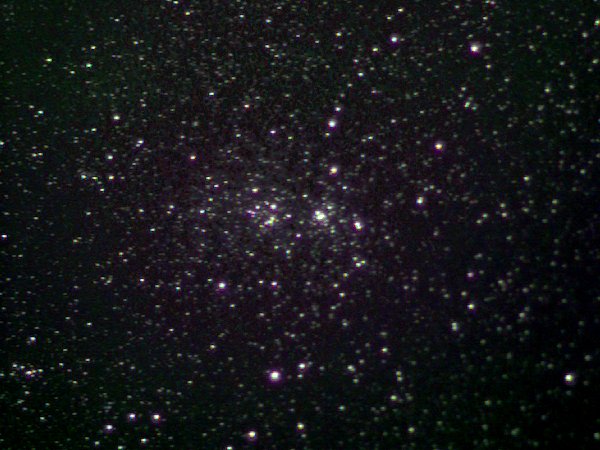Last updated: 5 January 2005
|
Last updated: 5 January 2005 |
Sent: Monday, January 3, 2005 10:17:25 From: Graham, John L (Graham@udri.udayton.edu) I've gotten a couple of emails asking about how I adapted SLR lenses for the DSI and seeing how it's been cloudy here (and likely to stay that way for a while) I thought I'd upload a couple of pictures. The first is one of several lenses I've adapted for use with the DSI. This is a spare Olympus 50mm f/1.8 lens that has a 1.25" adapter glued directly to the lens mount. In this case the adapter is a short section cut from a spare Barlow that came with one of my Tasco refractors. Earlier versions used a short length of 1.25" ID PVC tubing. The mounting plate is designed to mount on my curved bolt tracker, Meade DS-2130 GoTo mount, or piggy-back on an telescope. The centerline of the lens is 1-5/8" from the face of the mounting plate so the DSI rests flush against the plate; this makes it easy to stabilize and orient the camera and helps to carry its weight. The second example is an Albinar 80-200mm f/3.9 zoom lens with a Minolta mounting ring. This one uses a 1.25" adapter (scavenged from another Tasco Barlow) hot-melt glued to a dust cap. This way I can use the same adapter on different lenses without sacrificing them to The Cause. The few example pictures I've had time to take using the SLR lenses have shown I can easily reach stars as faint as 12th magnitude from my back yard which is a pretty typical magnitude 3-4 suburban sky. Being able to capture such faint stars and with a wide field should make imaging targets like comets, asteroids and the outer planets a lot of fun. I've attached a recent example of a 10x60sec exposure of the Double Cluster taken with the 50mm f/1.8 lens. The image was processed with PhotoShop to reduce the background sky glow.-John

Return to the top of this page.
Go back to the Astrophotography Page.
Go back to my ETX Home Page.